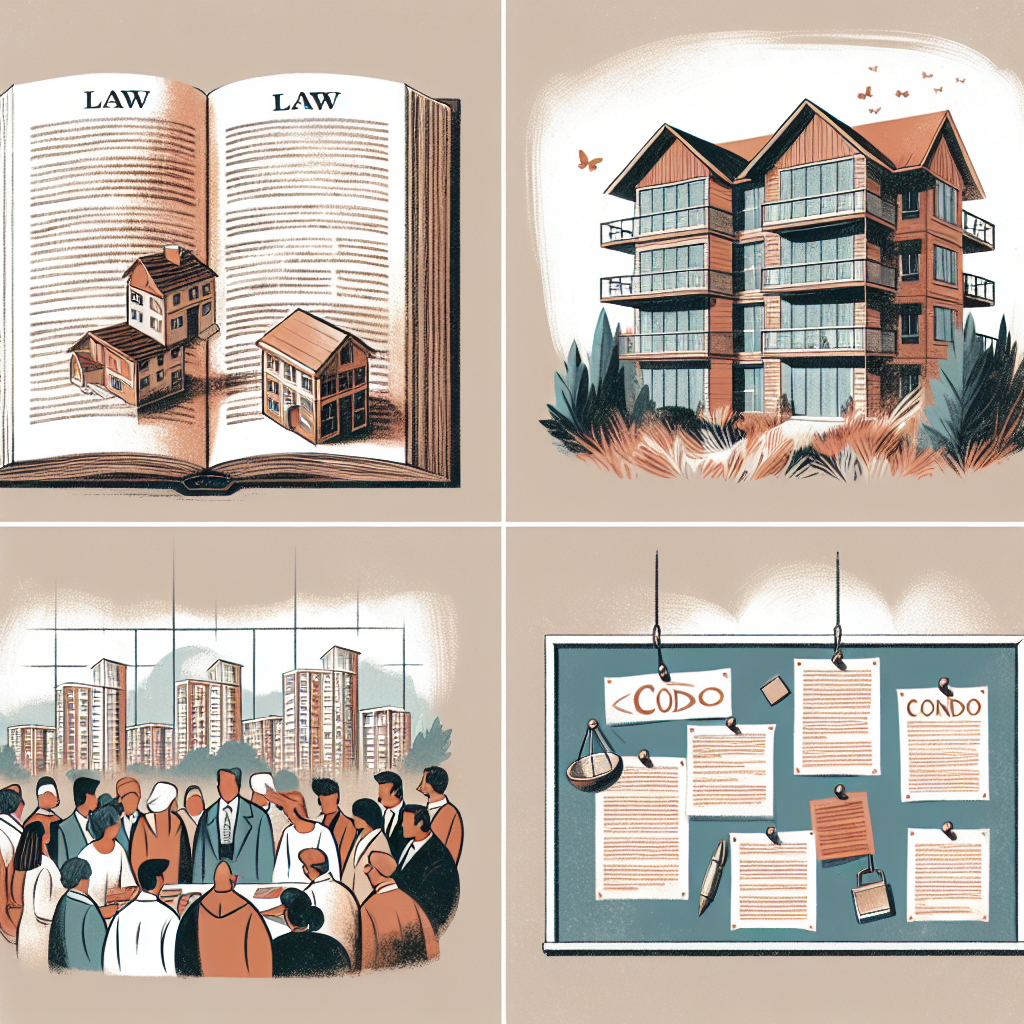
Exploring Legal Aspects of Condo Living: A Comprehensive Guide to Condominium Law
Living in a condominium, or "condo," can offer many advantages such as shared amenities, reduced maintenance responsibilities, and attractive locations. However, it also comes with its own set of unique legal considerations. Understanding these legal aspects is crucial for both condo owners and prospective buyers to ensure that their rights are protected. In this blog post, we'll aim to break down complex condominium laws into a simpler language, providing a more detailed understanding of the legal obligations and rights associated with condo living.
What is Condo Law?
Condo law pertains to the rules and regulations governing condominiums. This includes aspects such as ownership rights, condo association laws, rules about common areas, repair responsibilities, and more. These laws vary from state to state, making it vital for condo owners and buyers to be aware of the specific laws in their area.
Ownership and Property Rights
When you own a condo, you own a specific unit within a building and share ownership of the common areas with other unit owners. These ownership rights are typically defined in the Condominium Declaration, a legal document that forms part of your purchase agreement. This document sets out the key parameters of your ownership, including the boundaries of your unit, your voting rights in the condo association, and your responsibilities for maintenance and repairs.
Condo Association Rules
Every condo has an association or Board of Directors that sets rules for the management and maintenance of common areas, dealing with repairs, and enforcing bylaws. These rules can cover everything from pet ownership to noise restrictions to architectural guidelines. It's important to familiarize yourself with these rules and procedures, as failure to comply can result in fines or liens against your property.
Dispute Resolution
At times, condo owners may find themselves in a disagreement with the Condo Association or other owners. Most condo laws provide for certain procedures to resolve such issues. This may involve mediation, arbitration, or even court action. Understanding these procedures will help in effectively managing and resolving such disputes. It's also important to know that some states have specific laws that provide additional protections for condo owners in disputes.
Understanding Fees
Every condo owner is required to pay monthly or annual condominium fees. These fees are used for maintenance of common areas, provision of amenities, and other communal expenses. Understanding how these fees are calculated, what they are used for, and your obligations in relation to them is integral to condo living. For example, you should know that these fees are typically based on the size of your unit and the amenities offered by the condo, and that failure to pay these fees can result in a lien on your property.
While this guide provides a detailed overview of key legal aspects to consider in condo living, laws can vary greatly depending on local jurisdictions. Always seek legal advice when making a property purchase or when in doubt about your legal obligations as a condo owner.
Key Takeaways:
Condo law includes a wide range of rules and regulations governing condo ownership, management, dispute resolution, and fees.
Ownership Rights: Condo owners own their unit and share ownership of common areas. The specifics are usually laid out in a Condominium Declaration.
Association Rules: Condo Associations or Boards have rules owners must follow or risk fines or liens.
Dispute Resolution: Procedures typically exist within condo laws to handle disputes between the condo association and the owner.
Condo Fees: Owners must pay these fees, which go towards common area maintenance and other communal expenses.